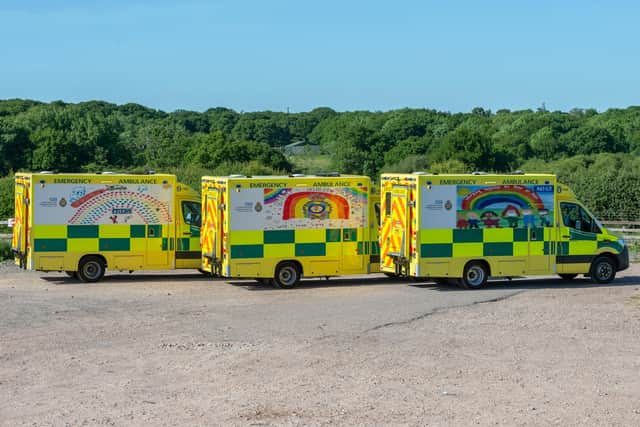High Sheriff looks at the ambulance service and its ‘heroes in headphones’
and live on Freeview channel 276
The ambulance service has been described as the glue that holds the NHS together and, as such, it has had to adapt rapidly to the challenges of Covid-19. A task which its committed team of specialists and volunteers have managed to achieve magnificently.
West Sussex is home to a very impressive member of the NHS family, South East Coast Ambulance Service NHS Foundation Trust (SECAmb), which moved to its purpose-built headquarters in Crawley in 2017.
Advertisement
Hide AdAdvertisement
Hide AdSECAmb employs more than 4,000 staff and serves almost five million residents of the South East of England. Every year, it receives in the region of one million 999 calls, its telephone triage 111 service takes more than 1.1 million calls and its vehicles travel 15 million miles across 3,600 square miles of Sussex, Surrey, Kent and north east Hampshire. It is a very busy organisation.


Half of the 999 calls SECAmb receives are deemed category one (life-threatening) or category two (emergency) – that’s one a minute. Ensuring that the right response team gets to the right place within the right time is down to expert teams in its two Emergency Operations Centres in Crawley, West Sussex and Coxheath in Kent.
Within only a few minutes of receiving a 999 call, these highly-trained people must decide how a call should be managed, calm an often distressed caller and even instruct them how to perform CPR or deliver a baby, while dispatchers arrange the appropriate response. I’d wholeheartedly agree with the sentiment that they are the ‘heroes in headphones’.
Paramedics are now trained to a graduate level and are deployed, alongside a variety of clinical roles and specialist clinicians, in rapid response cars, ambulances or even in GP practices. Ambulance clinicians deal with some of the NHS’s most sick patients and they regularly have to perform potentially life-saving resuscitation. However, they are known for their care, good-humour and unflappability and Liam McDine, a paramedic, described his role to me as ‘the best job in the world’.